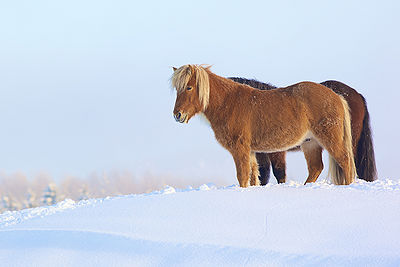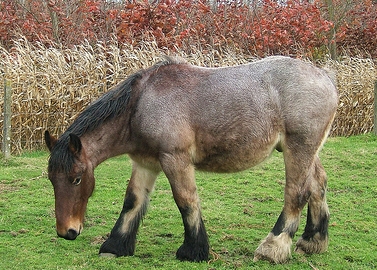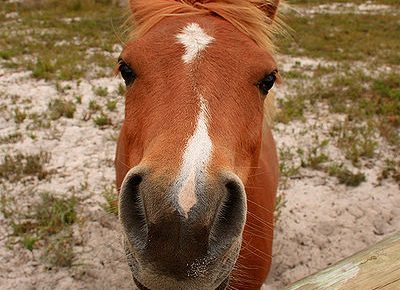 |
Cold, rain, snow, ice – it’s that time of year, winter. Believe it or not your horses have been preparing well in advance for inclement weather.
Horses begin growing their winter coats when the days start to grow shorter which means way before temperatures drop. How heavy a horse’s coat grows depends on climate and where the horse was bred.
When cold temperatures arrive, observe how fluffy your horse’s coat becomes. The hairs lift, trapping heat near the skin and providing insulation from nasty weather. If you blanket your horse, it’s not necessary to buy the heaviest blanket. Make sure the blanket isn’t too tight or too loose so that it will impede the horse’s movement. After removing the blanket from your horse, you’ll see the hairs gradually lift again. The outer hairs repel water while the undercoat insulates. Farmers and cowboys, when out riding in freezing weather, will often run their hands through the horse’s coat to warm them. Senior horses and horses that are arthritic usually benefit from wearing a blanket when temperatures dip.
Provide access to the barn or other shelter where your horse can retreat to and keep out of the weather. Make sure your barn is well ventilated to avoid air pollution from manure, dust and mold. Good ventilation can help keep your horse free of respiratory illnesses and discomfort.
Make sure your horse is provided with enough fresh, good quality hay and some extra on particularly cold days. The fiber is digested slowly and helps sustain heat over a long period of time. Fats and grains add calories and are important to keep your horse’s weight up, but won’t sustain heat for long.
Horses tend to drink less in winter so it’s up to you to see that there is always fresh drinking water, free of ice. Change the water often. You can purchase a safe water heater to maintain above-freezing water temperatures at all times. Some horses even prefer their water a bit warm. And drinking enough water keeps digestion running smoothly. To increase the amount of water consumed, you can add some to feed and add salt and electrolytes to their diet. Always check with your veterinarian first. There are automatic horse waterers available that can be installed along with optional heaters.
When you turn out stable horses in icy conditions their exuberance can cause falls and injuries. Your horse should not be confined continuously, but allowed out daily to become accustomed to the ground and avoid accidents.
Continue daily hoof care and dental care through the winter. Some farriers suggest removing a horse’s shoes to avoid getting ice caught in them. Ask your farrier if this would work for your horse.
Horses need exercise in winter too. You know your horse’s limits and look for any signs of tiredness. After exercise, cool down your horse making sure he doesn’t become chilled.
Your horse is now prepared for winter and we hope it’s an enjoyable one for you both.
Related Articles


